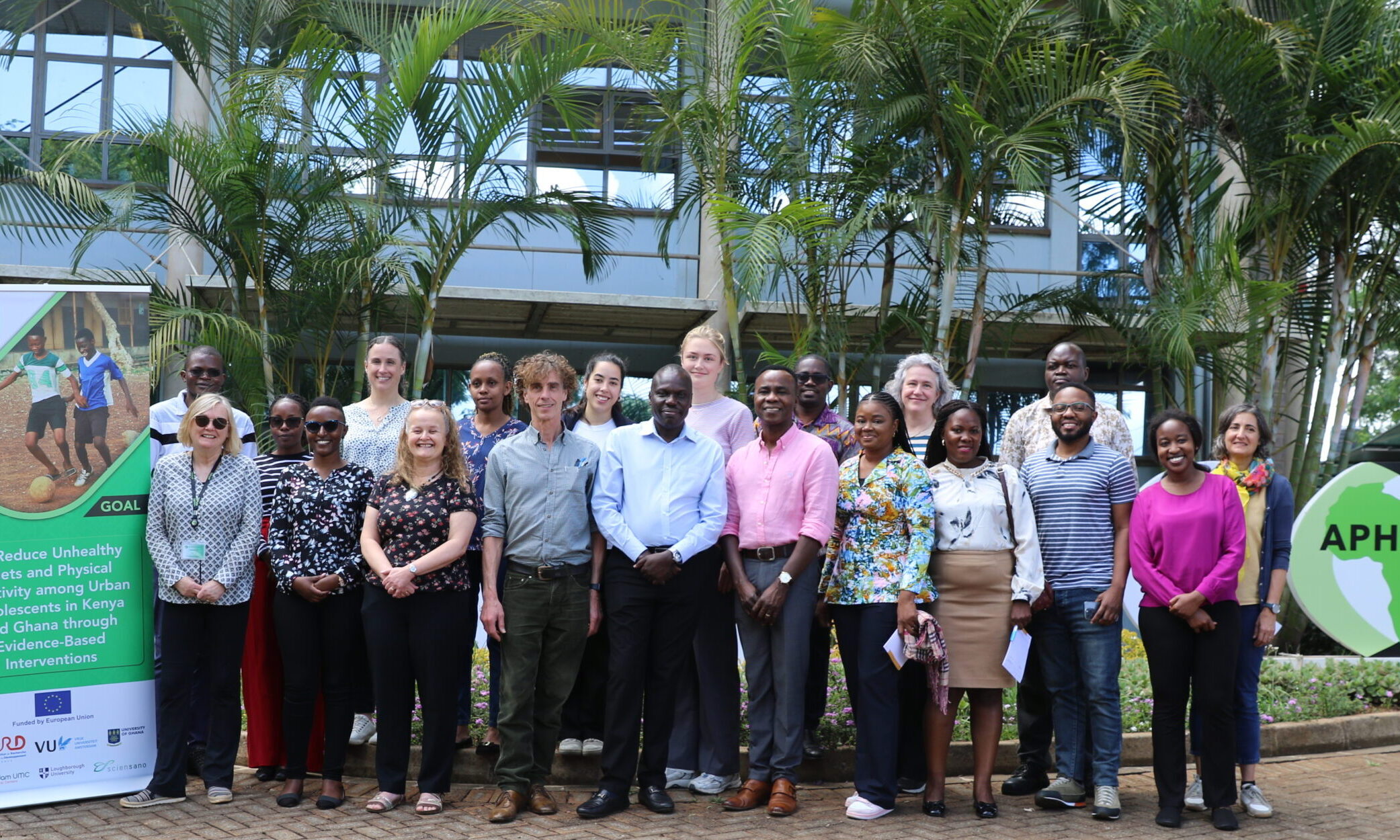Last December (2024), the first annual meeting of the Generation-H project took place at the African Population and Health Research Center (APHRC) in Nairobi, Kenya. The hybrid meeting consisted of 3 inspiring days where the project team discussed various topics, gained a deeper understanding of the study context and strengthened collaborative relations.
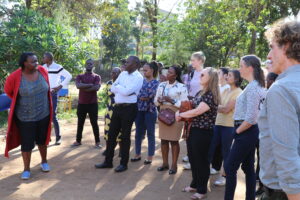
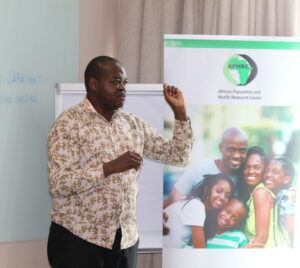
The first day consisted of site visits in the different study areas in Nairobi. After a kick-off and welcome from Prof. Andre Pascal, the director of Programs at APHRC, the project team went to Buruburu. This study site represents a middle-income socio-economic environment and there they visited a community centre, a church and a school. In the afternoon the project team continued to Kibra, the study site representing low socio-economic environment. Important insights were gained in a school and a community center that advocate for the safety of girls. These site visits proved a valuable basis for the discussion on day 2 and 3 of the meeting, as the team had now a good understanding of the study context and gathered valuable insights from conversations with community members.
The meeting on day 2 started with a kick-off from the project coordinator from Amsterdam UMC, covering the project progress and practical insights into project management. Work package 2 (optimisation of the WHO Best Buys and other recommended interventions) presented the results of the realist review and the stakeholder consultations, providing input for a valuable discussion on potential interventions. Then the Ghana team, reflected on the site visit on differences between the context of Ghana and Kenya. Work package 3 (implementation strategy development for the intervention delivery) followed with an update on the development of the implementation strategies. Finally work package 7 (dissemination, exploitation and stakeholder engagement) discussed dissemination, social media strategies and stakeholder engagement. The day ended with a social dinner.
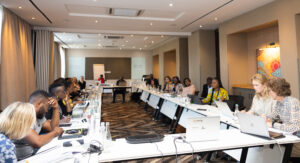
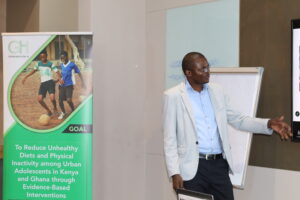
The last day of the meeting focused among others on reaching and involving out of school adolescents and the preparations done by the APHRC and the University of Ghana for community engagement and the recruitment of participants for the intervention delivery. An update followed about the study design and the proposed sampling design. Presentation on outcome evaluation and health economics led to important discussions. The APHRC team provided insights into the functionalities of the data collection system. Since there are several PhD students involved in Generation-H, the annual meeting was a good opportunity for the PhD students to present their plans to align and avoid overlap. The last part of the meeting discussed cooperation and communication within the consortium. The meeting concluded with the making of several important decisions.
We look back on a successful first annual meeting in which important decisions were made and several working groups were formed. We look forward to the continuation of the project and thank the APHRC for their hospitality during the annual meeting.

